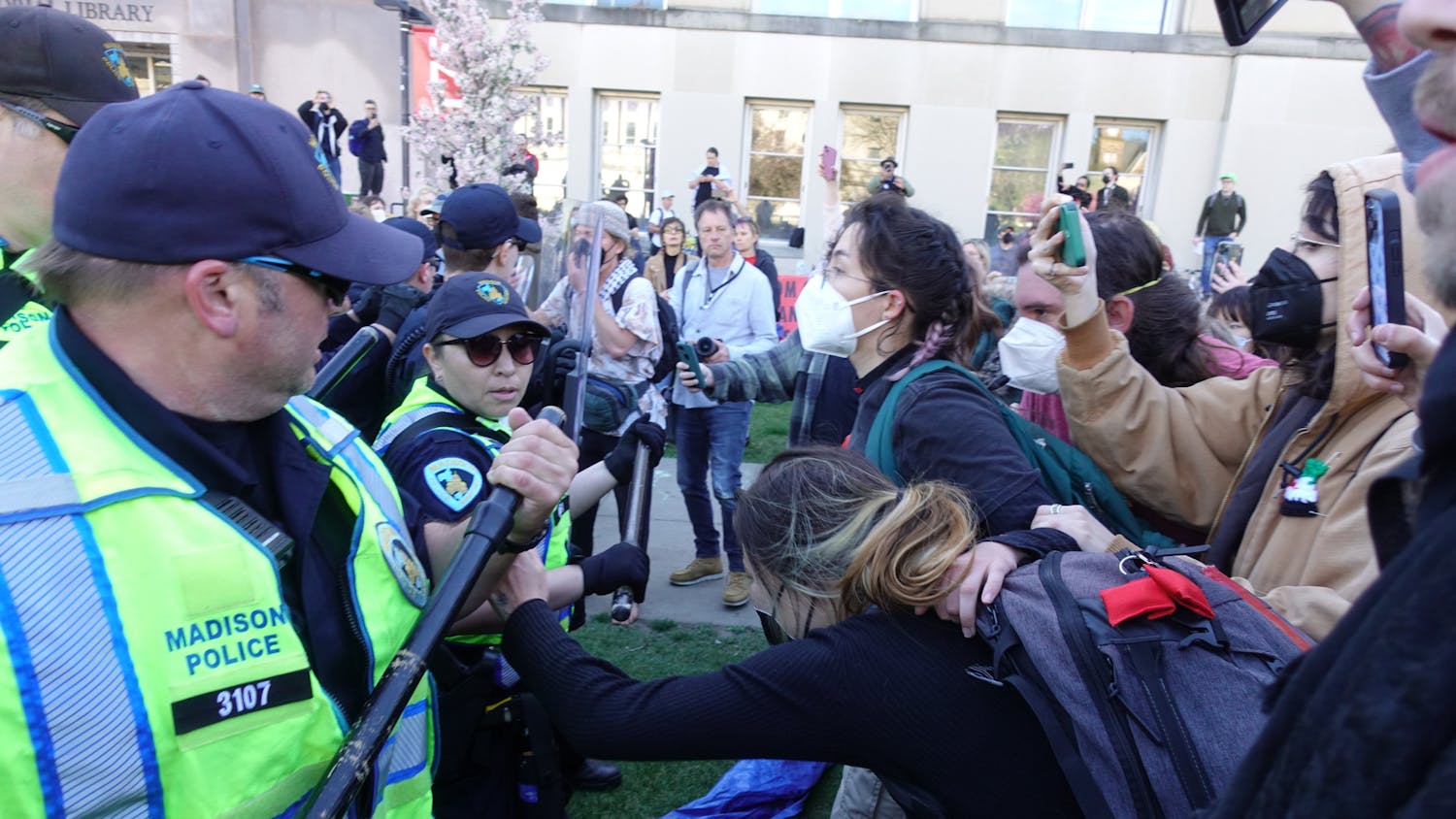A proposal that would require Madison Police Department officers to be outfitted with body cameras has sparked a discussion about police relations within the Madison community.
A special committee that the Madison Common Council appointed and tasked with evaluating the benefits and setbacks of using the cameras has investigated the proposal since it was first presented. Deciding upon the fate of the proposal was delayed earlier this October and a final Common Council vote was scheduled for Nov. 17.
In response to the issue, a report on minority communities’ reaction to body cameras compiled by the Madison YWCA Center for Family Policy and Practice was presented to community members at a meeting Thursday.
Jacquelyn Boggess of the Center for Family Policy and Practice presented the report gathered from the responses of about 200 minority individuals in Dane County. Among the respondents were members of the African-American, Latino, LGBTQ and Hmong communities, as well as survivors of domestic violence.
Boggess said she interviewed participants, many of whom were principally concerned with manipulation of camera footage, as well as the safety of African-Americans.
“I don’t see how [body cameras] can help,” one anonymous participant said, according to Boggess.
Others expressed frustration over racial profiling.
“In the same way that they are targeting the black community, they will eventually target the Latino community,” another respondent said.
MPD Chief Mike Koval, who was also present, emphasized the force’s compliance regardless of the committee’s ultimate decision.
“We understand that the council thought that [body cameras were] a critical need at this point ... Ultimately, when the report is submitted to the council ... should the council adopt its findings outright and go along with those findings, that works for us,” he said. “But on the other hand, if the council believes that there’s a need to acquire more data ... the police department will be amenable to those findings.”
Boggess clarified that although the respondents expressed concerns over privacy and race relations, the “report does not weigh in on whether there should be body cameras or not.”
Rather, the report found that many feared the police and the cameras “would not assuage the fear, was the general consensus,” she added.
MPD Public Information Officer Joel DeSpain said that, although there is no current mandate, body cameras are likely to be implemented eventually.
“The chief has said it’s a matter of not ‘if,’ but ‘when’ the department will get cameras,” he said.
Yet, DeSpain noted the cameras are an expensive investment and technology will only continue to advance in the future. He also explained the challenges that the body cameras present.
The department would “need a way to maintain and retrieve the video,” DeSpain said.
“[We] must get around the fact that there are people who do not want to be recorded,” he said.
Ultimately, Koval explained that the police force’s main objective is to maintain a strong relationship with the citizens of Madison.
“We really want to show our receptiveness in knowing what is in the best interest of the community,” he said.






